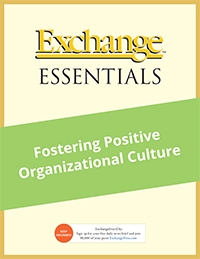ExchangeEveryDay Past Issues
 << Previous Issue
| View Past Issues | | Next Issue >>
<< Previous Issue
| View Past Issues | | Next Issue >> -Madeleine Albright (1937-2022), Former US Secretary of State
In an intriguing Psychology Today article, Peter Gray shares how magazine advice to parents has changed over the decades: “A 1966 article in Good Housekeeping proposed a set of guidelines for children’s public autonomy as follows: ‘A six- to eight-year-old can be expected to follow simple routes to school, be able to find a telephone or report to a policeman if he is lost, and to know he must call home if he is going to be late. A nine- to eleven-year-old should be able to travel on public buses and streetcars, apply some simple first aid, and exercise reasonable judgment in many unfamiliar situations.’”
Through documenting adults’ memories of play, Educator Diane Levin shows a parallel decrease in children’s autonomous play, away from adult supervision. In one of twelve articles included in the Exchange Essentials, “Advocating for Play,” Levin writes, “In the past, when both rural and urban children were not in school, they were outside playing with neighborhood children morning, noon, and night. Older children played with younger children and helped them when there were problems. Adults were rarely involved... Today, children spend little independent time outdoors on their own and often have little regular contact with neighborhood children or with children of other ages…There seem to be more worries about dangers outside the home now.”
Levin points out some of the consequences, including “children have fewer opportunities to try out their ideas and work out an understanding of experience (both good and bad) in their own ways. This can prevent them from developing the sense of trust, safety, and autonomy that comes from child-controlled play.”
Gray warns, “As parents increasingly assume responsibility for carting their children around, helping them with schoolwork, overseeing or excusing them from chores, protecting them from real and imagined dangers, and providing spending money so children don’t have to earn their own, they reduce their children’s opportunities to develop the understanding that they are capable of being responsible themselves.” Levin urges us to learn from the play stories of previous generations and reconsider the power of child-led play and exploration.
 |
In our large collection of Exchange Essentials article collections, find resources on subjects such as administration, child development, curriculum, environments, family, and leadership. |
|
Offer valid through April 15, 2022, at 11:59 pm Pacific Time. |
ExchangeEveryDay
Delivered five days a week containing news, success stories, solutions, trend reports, and much more.
What is ExchangeEveryDay?
ExchangeEveryDay is the official electronic newsletter for Exchange Press. It is delivered five days a week containing news stories, success stories, solutions, trend reports, and much more.


Comments (1)
Displaying 1 CommentEugene, OR, United States
I'd love to hear from others how you played as a child. Where were the adults? In my case, we knew my grandparents wanted us home when we heard the brass bell on the front porch. Otherwise, as long as we didn't go anywhere alone, we'd play in the woods, on the beach and all kinds of 'dangerous' places.
Post a Comment